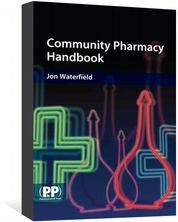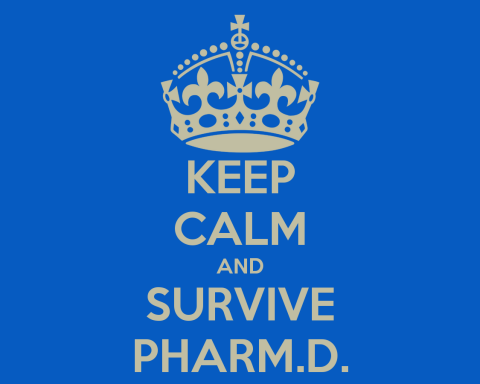One of the very important services for the patient in the community as WHO recommendation is community pharmacy. Most of the developed countries have already started this service to serve people for better health care.The LDC countries are rarely following this system. Bangladesh is going through the primary step of the system of serving people through good hospital pharmacy practices. This system could be more beneficial to the public if the good hospital and community practices are introduced properly and also by involving the pharma professionals e.g. pharmacists and other skilled health care providers. The Ministry of Health of Bangladesh Govt. should look into the matter seriously without delay as the system has been introduced already in most of the developed and developing countries. The major functions, duties, responsibilities and actions of the community pharmacists are given below for protecting the safety and efficacy altogether the rational use of drugs in the community clinic.
As per WHO Health Care Scheme, community pharmacy is one of the very important conditions to assure better health care to patient. In this system people usually visit nearby drug stores to get their medications prescribed by their physicians. The traditional role of the community pharmacists as the health care professional who dispenses prescriptions written by physicians have changed. In the recent years community pharmacy have been developingclinical services in addition to the traditional dispensing role to allow better integration and team efforts with the rest of the other national health staff.
Access in Community Pharmacy
The community pharmacy should have easy access where people can go and shop easily. This pharmacy should be located in such area where people can reach within 20 minutes either by walking or by car/public transport. In other words community pharmacy is consequently social organization, less formal and a convenient outlet for those people who can’t access to other kinds of health services. Most of the community pharmacies are having private confidential consultation room specifically for confidential and sensitive discussion.
[wp_ad_camp_1]
National Health Staff Services
- Community pharmacies need to introduce a rational use of medicines in the community by establishing community clinic. The following services are provided from them
- Dispensing of drugs, medicines
- Labeling the medicines correctly
- Follow the directions of the prescribers
- Community pharmacist with proper education on pharmacy, training, experience should be allowed to prescribe
Repeat Dispensing
This service is allowed to collect or buy medicines without going to GP.
Disposal of Unwanted Medicines
If any medicines are no longer in use by the patient the same may be taken to the community pharmacy for safe disposal.
Promotion of Health Life Style
The advice like healthy and nutritious eating, cessation of smoking and doing exercise may be provided by community pharmacy. Leaflet and other written instruction could be made for healthier choices. Health promotion campaign may be arranged for teaching health topics such as taking care in the sun and long term risk condition of diabetes.
Signposting to Other Services
Additional help may be provided with contract details with other health care providers. These may be social or voluntary organization.
[wp_ad_camp_1]
Support for Self Care
Community pharmacy will teach to the patient and their family also on treating minor illness e.g. coughs colds or long term conditions such as arthritis and diabetes. This support may include medicines those can be bought from pharmacy as OTC products without prescription.
Use of IT in Pharmacy
All records, messages, data etc should be documented and recorded in electronic system rather than recording in piece of paper.
Local Services for Local People
Emergency first aid, blood pressure monitoring, glucose monitoring, diarrhoea, malaria, smoking advice, use of contraceptive, anticoagulation monitoring, sexual health advice may be given for the local people from community pharmacy.
How Are Pharmacists Trained?
The underlying principles of all pharmacy educations and training are ensuring safe and effective use of medicines. These principles underpin pharmacists’ work throughout their undergraduate, postgraduate and continued learning, and subsequent service pathway. Students undertake 4 years B. Pharm. degree, M. Pharm. degree might be able to learn about origin and chemistry of drugs, the preparation and formulation of drugs, physico-chemical properties of drugs, dosage and administration of drugs, biochemistry, physiology, pharmacology, pharmacognosy, pathology, microbiology, 1 year internship under an experienced supervisor followed by a professional examination and successfully completion of the same may be awarded a certificate for registration as a pharmacist. Pharmacist should develop themselves with, cGMP, GHPP, GLP and safety of drugs. They must show respect to the patient privacy.
Pharmacist must continue to up to date their knowledge during their career by understanding professional development.
Daily Life of a Community Pharmacist
The community pharmacist’s life is hugely varied one, drawing on a wide range of clinical and non clinical competencies and skills. Every pharmacy is required to be operated under the control of a RESPONSIBLE PHARMACIST. The daily tasks undertaken by community pharmacist include:
i. clinical scrutiny of prescriptions
ii. oversight of safe dispensing processes
iii. providing patients with advice about medicines and treatment
iv. provision of public health information to patients and customers and promotion of wellness.
treatment of minor ailments
v. sales of OTC
vi. liaison with other health care professionals
vii. special attention to asthma, diabetes, HBP
viii. repeat prescription management.
Pharmacists’ Support Staff Competent Team
a. Medicines counter assistant
b. Dispensing assistant
c. Pharmacy technicians
d. Accredited checking technicians
There is tremendous development in the recent years in the pharma world that pharmacist can prescribe medicines and this should be framed as law to allow practices. This dedicated responsibility will help pharmacist to be more careful about the patients and use of drugs. And here a triangular action plan is very much needed among Doctor, Nurse and Pharmacist with a common holy objective for sick mankind. Outstanding pharmacists with their skills, knowledge can take the responsibility of community pharmacy along with community clinic.








